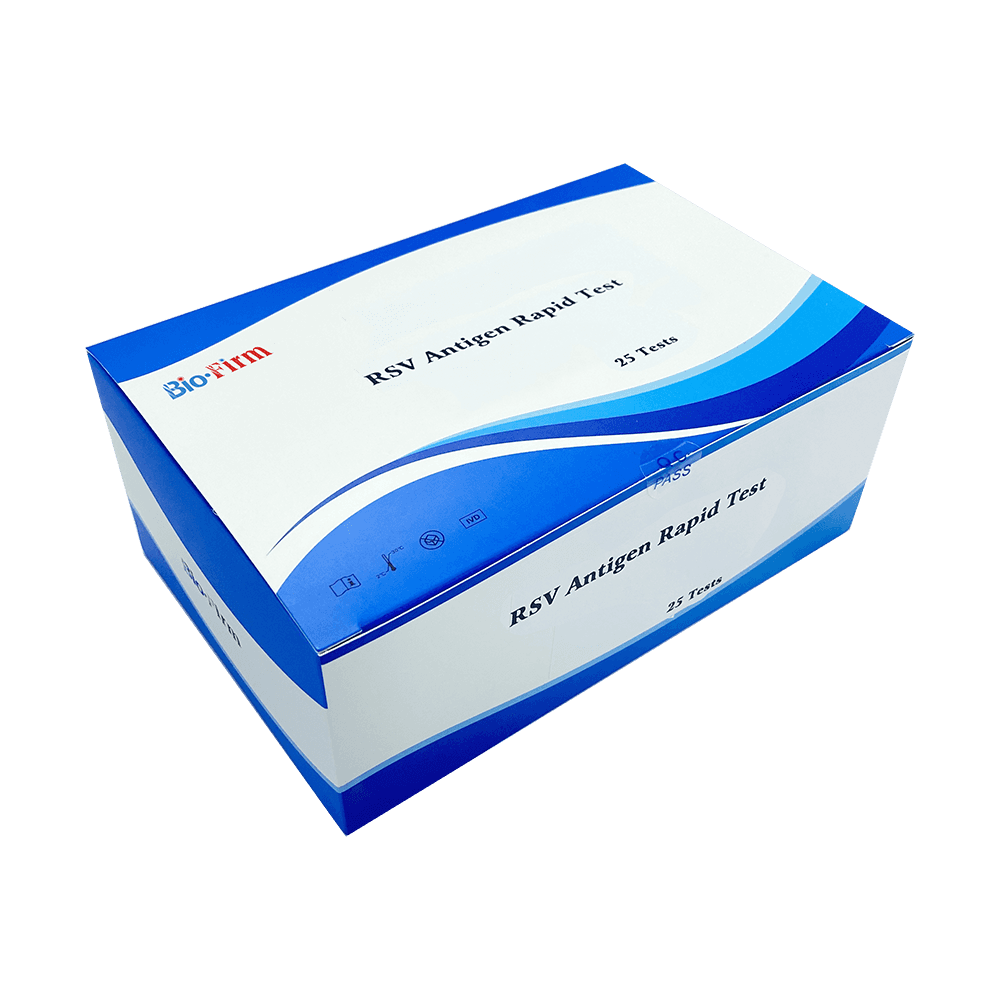Jul 01,2022
RSV (respiratory syncytial virus) antigen rapid tests offer quick and convenient methods for diagnosing RSV infections, particularly in pediatric populations. However, they have several limitations that can impact their effectiveness. Here’s an overview of these challenges and potential strategies to address them:
1. Sensitivity and Specificity Issues
Limitation: One of the primary limitations of RSV antigen rapid tests is their sensitivity, which can be lower than that of molecular tests (like PCR). This means that there’s a risk of false negatives, particularly in patients with low viral loads.
Addressing the Challenge:
Enhanced Test Designs: Development of more sensitive test kits through improved antibody capture techniques or amplification methods can help increase detection rates.
Combination Testing: Using rapid antigen tests alongside confirmatory molecular tests (like PCR) in cases of negative results can provide a more accurate diagnosis.
2. Timing of Testing
Limitation: The timing of the test is crucial; rapid tests may yield false negatives if performed too early or too late in the infection when viral loads fluctuate.
Addressing the Challenge:
Clear Guidelines: Providing clear guidelines on the optimal timing for testing in relation to symptom onset can help improve diagnostic accuracy.
Educational Initiatives: Educating healthcare providers and patients about the importance of timing in testing can ensure that tests are administered when they are most likely to be accurate.

3. Operator Dependency
Limitation: The accuracy of rapid tests can be influenced by the operator’s skill and experience. Improper sample collection or handling can lead to erroneous results.
Addressing the Challenge:
Training and Certification: Implementing standardized training programs for healthcare personnel on proper testing procedures can reduce variability in test results.
Quality Control Measures: Establishing strict quality control protocols and regular audits can help maintain high testing standards.
4. Limited Testing Scope
Limitation: Many rapid tests are designed specifically for RSV and may not detect co-infections with other respiratory pathogens, which can be common in patients presenting with respiratory symptoms.
Addressing the Challenge:
Multiplex Testing: Development of multiplex tests that can simultaneously detect multiple respiratory viruses, including RSV, can provide a more comprehensive assessment of respiratory illnesses.
5. Cost and Accessibility
Limitation: While rapid tests are generally more affordable than PCR tests, costs can still be a barrier in some settings, particularly in low-resource environments.
Addressing the Challenge:
Cost-Effective Solutions: Encouraging the production of cost-effective testing kits and providing subsidies or support for testing in underserved areas can enhance accessibility.
Public Health Initiatives: Governments and health organizations can work together to ensure that rapid tests are available in community health settings.
While RSV antigen rapid tests are valuable tools for diagnosing respiratory syncytial virus infections, they come with limitations that can affect their effectiveness. By addressing issues related to sensitivity, timing, operator dependency, testing scope, and accessibility, healthcare providers can improve the accuracy and reliability of RSV diagnostics. Continued advancements in technology and best practices will enhance the utility of these rapid tests, ultimately leading to better patient outcomes.



 Español
Español
 Français
Français
 Deutsch
Deutsch
 عربى
عربى








